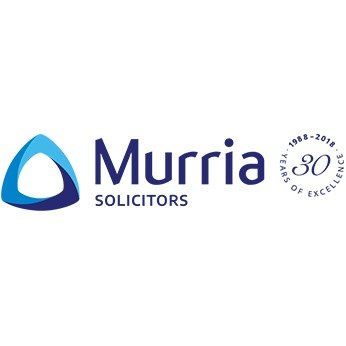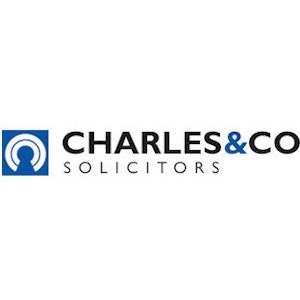Best Nonprofit & Charitable Organizations Lawyers in Birmingham
Share your needs with us, get contacted by law firms.
Free. Takes 2 min.
List of the best lawyers in Birmingham, United Kingdom
About Nonprofit & Charitable Organizations Law in Birmingham, United Kingdom
Birmingham, the UK's second-largest city, has a vibrant nonprofit and charitable sector that plays a crucial role in addressing local community needs, promoting volunteerism, and providing various services. These organizations range from small volunteer-run efforts to large entities influencing policy at national levels. The legal framework governing these entities ensures transparency, accountability, and compliance with applicable laws and regulations. This framework includes rules about how nonprofits are established, managed, and dissolved in the UK.
Why You May Need a Lawyer
Legal advice is often necessary for nonprofits and charities to navigate complex regulatory environments. Common situations where legal help may be required include:
- Establishing a new nonprofit or charity and understanding the legal structures available, such as charitable incorporated organizations (CIOs) or trusts.
- Ensuring compliance with the Charities Act 2011 and related regulations.
- Drafting and reviewing organizational documents, such as constitutions, bylaws, and governance policies.
- Handling tax issues, including applying for charitable status and meeting Gift Aid requirements.
- Dealing with employment law matters for staff and volunteers.
- Managing property and real estate, including leases and purchases.
- Addressing fundraising regulations and best practices.
- Resolving disputes within the organization or with external parties.
Local Laws Overview
In Birmingham, as elsewhere in the UK, charities and nonprofits must adhere to national laws, but they may also be affected by local guidelines. Key legal elements include:
- Registration: Organizations with a charitable purpose must register with the Charity Commission if their annual income exceeds £5,000 or if they are constituted as CIOs.
- Governance: Trustees are legally responsible for the governance of charities. They must ensure that their charity is solvent, well-run, and delivering its charitable objectives.
- Reporting Requirements: Depending on their size, charities must submit annual reports, returns, and accounts to the Charity Commission and, in some cases, to Companies House.
- Fundraising: Compliance with fundraising regulations is mandatory, including adherence to the Code of Fundraising Practice.
- Data Protection: Organizations must comply with the UK GDPR and Data Protection Act 2018, ensuring proper handling of personal data.
- Public Benefit: Charities must demonstrate that they provide public benefit, which is assessed by the Charity Commission.
Frequently Asked Questions
What defines a nonprofit in the UK?
A nonprofit organization operates for a social, educational, charitable, or community purpose rather than for profit. It re-invests surplus revenues back into its operations to further achieve these objectives.
What is the process for registering a charity in Birmingham?
Organizations need to apply via the Charity Commission's online portal, providing details of their charitable purposes, governing document, and financial information. If the application meets the requirements, the charity will be registered and assigned a charity number.
Can nonprofits have paid employees?
Yes, nonprofits and charities can employ staff and pay salaries. Trustees, however, usually serve voluntarily unless otherwise authorized by the Charity Commission.
What are the responsibilities of a charity trustee?
Trustees are responsible for ensuring the charity is solvent, well-run, and adheres to its objectives. They also oversee financial stewardship, strategy, and the charity's public activities.
How can a nonprofit organization fundraise legally?
Nonprofits must comply with the Code of Fundraising Practice and ensure transparent processes. They can fundraise through donations, grants, sponsorships, and other approved methods.
How can my nonprofit apply for Gift Aid?
To claim Gift Aid, charities must register with HM Revenue & Customs (HMRC) and maintain records that demonstrate donors have paid sufficient tax.
What are the consequences of not complying with charity laws?
Non-compliance can lead to penalties, removal from the charity register, and potential legal action. It may also result in financial and reputational damage.
What should I consider when writing a nonprofit's constitution?
Include the organization's name, purpose, governance structure, trustee roles, membership rules, and how meetings and financial controls are handled.
How do I handle a dispute within the charity?
Address disputes by consulting governing documents for procedures, appointing mediators if necessary, and seeking legal advice to resolve conflicts efficiently and legally.
What is the Public Benefit requirement?
Charities must provide a tangible benefit to the public. This requirement is assessed by the Charity Commission based on the objectives and activities of the organization.
Additional Resources
Those seeking further information and assistance may find the following resources helpful:
- Charity Commission for England and Wales: The regulatory body for charities in England, it provides comprehensive guides on compliance and registration.
- HM Revenue & Customs (HMRC): Offers guidance on tax-related issues, including Gift Aid and VAT for charities.
- National Council for Voluntary Organisations (NCVO): Provides support, advice, and resources to nonprofits across the UK.
- Local Council for Voluntary Service (CVS): Offers specific support for the Birmingham area, including networking and development services for local charities.
Next Steps
If you need legal assistance with a nonprofit or charitable organization in Birmingham, consider the following steps:
- Conduct research to identify reputable law firms or legal advisors specializing in nonprofit law within Birmingham.
- Prepare documentation related to your query, including organizational documents, correspondence, and any relevant financial records.
- Schedule consultations with potential legal advisors to discuss your needs, their experience, and their approach to nonprofit legal issues.
- Select a legal advisor who demonstrates expertise in nonprofit law and aligns with your organization's values and goals.
- Work closely with your chosen advisor to address your legal needs effectively and ensure compliance with all applicable laws and regulations.
Lawzana helps you find the best lawyers and law firms in Birmingham through a curated and pre-screened list of qualified legal professionals. Our platform offers rankings and detailed profiles of attorneys and law firms, allowing you to compare based on practice areas, including Nonprofit & Charitable Organizations, experience, and client feedback.
Each profile includes a description of the firm's areas of practice, client reviews, team members and partners, year of establishment, spoken languages, office locations, contact information, social media presence, and any published articles or resources. Most firms on our platform speak English and are experienced in both local and international legal matters.
Get a quote from top-rated law firms in Birmingham, United Kingdom — quickly, securely, and without unnecessary hassle.
Disclaimer:
The information provided on this page is for general informational purposes only and does not constitute legal advice. While we strive to ensure the accuracy and relevance of the content, legal information may change over time, and interpretations of the law can vary. You should always consult with a qualified legal professional for advice specific to your situation.
We disclaim all liability for actions taken or not taken based on the content of this page. If you believe any information is incorrect or outdated, please contact us, and we will review and update it where appropriate.














